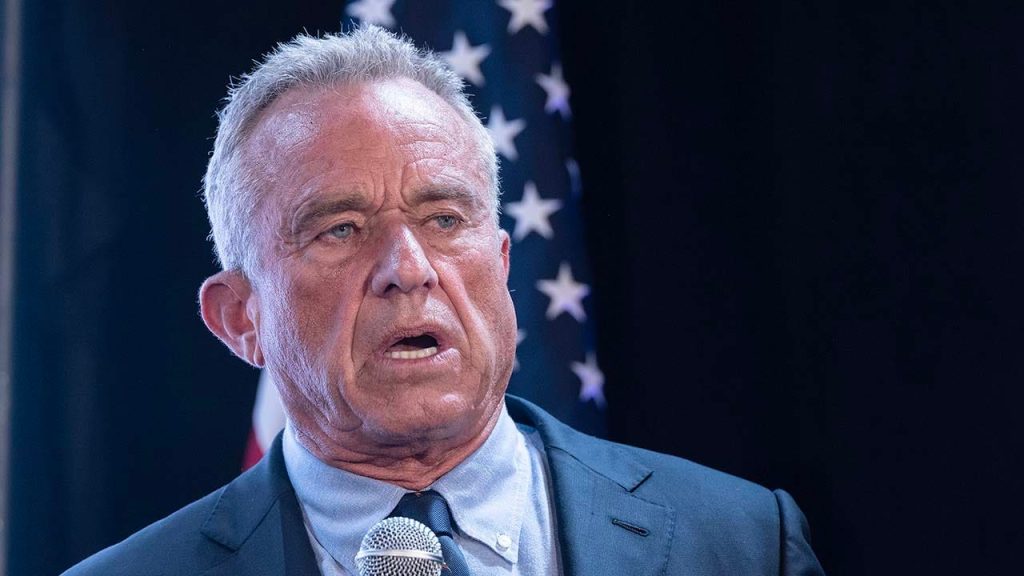Robert F. Kennedy Jr. has a history of making controversial and sometimes false statements, alienating people on both the left and the right. Despite his unusual campaign tactics, his famous last name has allowed him to maintain a polling percentage of about 8 to 10%, potentially putting him in spoiler territory. Recently, it was revealed that Kennedy has been concealing serious medical conditions, including a dark spot on his brain scans, memory loss, mental fogginess, and a history of atrial fibrillation. He has also been diagnosed with mercury poisoning from consuming contaminated fish. Despite these ailments, Kennedy has projected a vigorous image in public appearances.
The New York Times reported that Kennedy had been called by a doctor in 2012 after doctors noticed the dark spot on his brain scans. The doctor believed that Kennedy had a dead parasite in his head that had eaten a portion of his brain and died. This information, along with his history of other medical conditions, was not disclosed by Kennedy to the public. His campaign has refused to release his medical records, and he has not been forthcoming about his health issues. The failure to disclose these serious problems raises questions about his fitness for office and the candidness of political candidates in general.
Kennedy’s health concerns have been compared to past presidents who hid their own medical issues, such as John F. Kennedy’s Addison’s disease. However, expectations for transparency from political candidates have increased over time, and more disclosure is now expected. Kennedy’s campaign has been reluctant to address his medical history, with a spokeswoman dismissing questions about his fitness for office as a suggestion based on the ages of his competitors, Joe Biden and Donald Trump. Kennedy’s running mate, Nicole Shanahan, has also maintained a low profile since joining the campaign, raising further questions about transparency.
The revelation of Kennedy’s undisclosed medical conditions has prompted concern about his ability to serve in public office, especially given the seriousness of the ailments he has experienced. While some past presidents have hidden their own health issues, the current political climate demands more transparency from candidates. The lack of disclosure from Kennedy’s campaign raises questions about the standards for honesty and openness in the political sphere. As the election approaches, voters may scrutinize Kennedy’s health and the campaign’s secrecy surrounding it.













